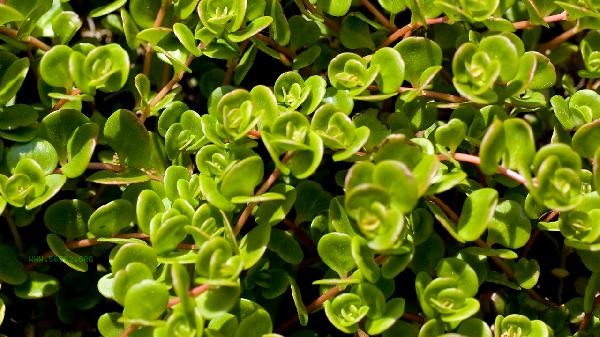Nourishing the stomach has always been one of the most critical topics for our daily health, and it is crucial for everyone. Moreover, stomach diseases are more common nowadays. Is there any way to nourish the stomach? Today, let's introduce what is good to eat for stomach health and what dietary taboos are for stomach health. Let's take a look together.
What foods to eat to nourish the stomach
Yam. Yam has a mild nature and a sweet taste, and belongs to the lung, spleen, stomach, and kidney meridians. Throughout history, ancient books have recorded the tonifying effect of yam. The Compendium of Materia Medica mentions that yam benefits the kidneys and qi, and strengthens the spleen and stomach. According to records, the "Eight Treasures Cake" that Empress Dowager Cixi ate to strengthen the spleen and stomach contained yam ingredients. Baked Mantou. Roasted Mantou can nourish the stomach. Try it as a staple food. The staple foods such as bread slices and Mantou slices are carbohydrates. Eating them in this way will often stimulate the secretion of stomach acid and increase pantothenic acid; However, if you bake the bread and Mantou pieces and eat them again, they can play the role of "nourishing the stomach". This is because the burnt bread and Mantou will form a gelatinization layer, which can neutralize gastric acid, inhibit gastric acid secretion and protect gastric mucosa. This is an ancient dietary therapy method, mainly suitable for patients with chronic superficial gastritis, and also applicable to most people with gastrointestinal problems.
Baked Mantou. Roasted Mantou can nourish the stomach. Try it as a staple food. The staple foods such as bread slices and Mantou slices are carbohydrates. Eating them in this way will often stimulate the secretion of stomach acid and increase pantothenic acid; However, if you bake the bread and Mantou pieces and eat them again, they can play the role of "nourishing the stomach". This is because the burnt bread and Mantou will form a gelatinization layer, which can neutralize gastric acid, inhibit gastric acid secretion and protect gastric mucosa. This is an ancient dietary therapy method, mainly suitable for patients with chronic superficial gastritis, and also applicable to most people with gastrointestinal problems.
Milk. Nourish the lungs and stomach, produce saliva, and moisturize the large intestine. Suitable for yin deficiency, stomach pain, and constipation caused by fluid deficiency; In modern times, it is used to treat peptic ulcer disease and habitual constipation. People with diarrhea, spleen deficiency syndrome, and dampness syndrome should avoid eating.
Xiaomi. Traditional Chinese medicine believes that millet tastes sweet and has a flat nature. It enters the kidney, spleen and stomach meridians. Compendium of Materia Medica also records that millet "cures nausea and hot dysentery, cooks Congee, benefits the elixir field, supplements deficiency and damages, and opens the intestines and stomach".
Noodles. The most stomach nourishing staple food is noodles. Noodles are rich in carbohydrates, which can provide sufficient energy. During the cooking process, they absorb a large amount of water. After 100 grams of noodles are cooked, they will become about 400 grams, which can produce a strong sense of satiety. In addition, noodles can stimulate people's thinking activities. The human brain and nervous system need a food that contains 50% carbohydrates, and noodles are the food that the human brain needs. Hard wheat contains B vitamins, which have a stimulating effect on brain cells.
Congee. Congee is easy to digest, especially Babao Congee, which contains peanuts, almonds, sugar, etc. It has more calories and is good for the stomach. Fresh peanuts are rich in protein and fat, which can effectively protect the stomach. There are three principles for determining breakfast foods that are suitable for nourishing the stomach: easy to digest, anti irritating, and nutritious. For example: egg custard, egg soup, boiled eggs, soybeans, soy products, vegetables, fruits, etc. So, what are the foods that should not be eaten to nourish the stomach? Foods that should be avoided for stomach nourishment
Foods that should be avoided for stomach nourishment
Avoid high-fat foods. Eating too much fried chicken and French fries can cause a large amount of fat to accumulate in the stomach, leading to nausea or diarrhea.
Avoid wolfing down food. Food enters the stomach, undergoes storage, grinding, and digestion to turn it into a milky consistency before being discharged into the intestine. If the food is not chewed thoroughly, wolfed down, and rough, it will increase the burden on the stomach, prolong the stay time, and cause damage to the gastric mucosa; In addition, chewing slowly can increase saliva secretion and reduce gastric acid and bile secretion, which is beneficial for the protection of the stomach.
Avoid eating chocolate. Chocolate can cause relaxation of the lower esophageal sphincter, leading to acid reflux and stimulating the esophagus and throat.
Avoid coffee and strong tea. Coffee and strong tea are both central stimulants that can cause gastric mucosal ischemia through reflex, disrupting the protective function of the gastric mucosa and leading to ulcer formation. To properly nourish the stomach, one must eat the right food.





Comments (0)
Leave a Comment
No comments yet
Be the first to share your thoughts!